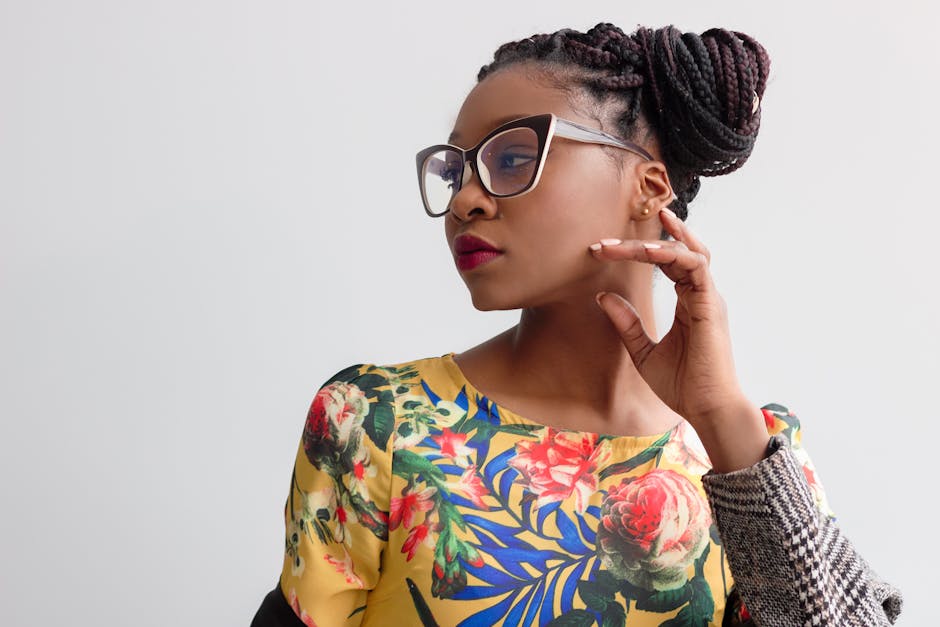https://www.youtube.com/embed/T3s6xaO0aIw
My name is Tony Kalume I work with Diversity Lewes which is a group that fights against discrimination, so we try to celebrate our differences I work at the University of Brighton doing stuff for a better Brighton kanga collection was something that I was passionate about for the various political and various cultural issues around kanga as you can see, the kangas have such a meaning to the whole cultural index, the Swahili and the East African people welcome to my Bitesize Talk at the Brighton Museum we're gonna talk about kangas which are cloth that come from Africa this is a tradition that goes back to the 18th century the first kangas were actually written in Arabic people couldn't read them but people liked the way they were; they were just basic white, dotted things it was just white cloth with dots on it the funny thing is, the name 'kanga' comes from 'guinea fowl', meaning 'you look as pretty as a guinea fowl'; that's why they're called kangas but then the Portuguese used to call them 'lenços' because 'lenços' in Portuguese means 'handkerchief' so the people during the 18th century used to buy these lenços and then they used to sew them together and make a big cloth for wrapping, traditionally used as head wraps so 'lenços' has retained that name until now - if you go to some places, people don't call it 'kanga', they call it 'lenços' - so there are two names in either bit so we come to the 18th-19th century and the Arabic wording started fading; people were speaking Swahili, so it became no more Arabic writing - they started using Swahili words in the western world, people gift flowers during weddings, or when someone is sick they send flowers or cards during Christmas, people send cards in this East African region, kangas are the cards they've got so much meaning - we can use a political example when Barack Obama became the president of the United States about eight years ago, this was what came out this is what people had it says 'Upendo Na Amani Ametujalia Mungu' - so 'Love and Peace.' 'God has given us love and peace.' so it's celebrating this ascension to presidency now this one's quite interesting because not one person can interpret the thing that's said 'Jee Umetosheka?' - this is a question it's asking: 'Are you satisfied?' in a way, you could give this to your girlfriend or to your wife; you could give it to her like a present or she can give it to you so this is kind of quite romantic there's another example here which shows the political side of things and funnily enough, it's written in English so people create these for big things like Unicef - this one was for the Decade of Women it was the UN Decade for Women Conference, July 1985, Nairobi/Kenya so this is in English but you can see now how, instead of giving them a goodie bag, like here when you go to a conference and you find people give you a goodie bag with pamphlets and some paraphernalia, with merchandise, instead you can just give them a lenço or a kanga - and that's part of it now, this is also another example of a nice saying 'Akili' means 'brain' 'Mali' means 'wealth' but at the same time, 'akili' can mean 'common sense' and 'mali' can mean 'money' So when you want to get married, you have to give a towel - so they are things you can give to your mother-in-law but then there are some things like that one saying 'Have you had enough?' - that one is a bit rude, because it's like: What have you given your mother-in-law so that she can have enough? so, there are some that you don't give to your mother-in-law; there are some that you can give to your sister, your daughter, and it's political we have kikoys which are displayed on some of the models according to where I come from, kikoys are worn by men and kangas are worn both by men and women, but guess what? men wear them only when they're in the bedroom and they won't be seen wearing a kanga outside so it's only the women who wear them outside so the connection with Fashion Cities Africa is to show how we can actually connect this feminine side of the fashion with the masculine side of the fashion and try to see if we can bring it together some people now, what they do is actually make coats out of kangas; they make pants out of kangas.

so you see the saying but it's not a wrap any more; it's a shirt or it's a coat with really nice lining it is changing the whole principle of fashion, in that the print is there and the sayings are there and they make sure that maybe it's at the back or on the side kangas are evolving in a way that they are being used in, lets say, the modern fashion way that's the kind of thing we want to communicate in Fashion Cities Africa..
https://howtoplaythedjembedrums.com/tony-kalume-introduces-the-kanga-an-east-africa-textile/

No comments:
Post a Comment